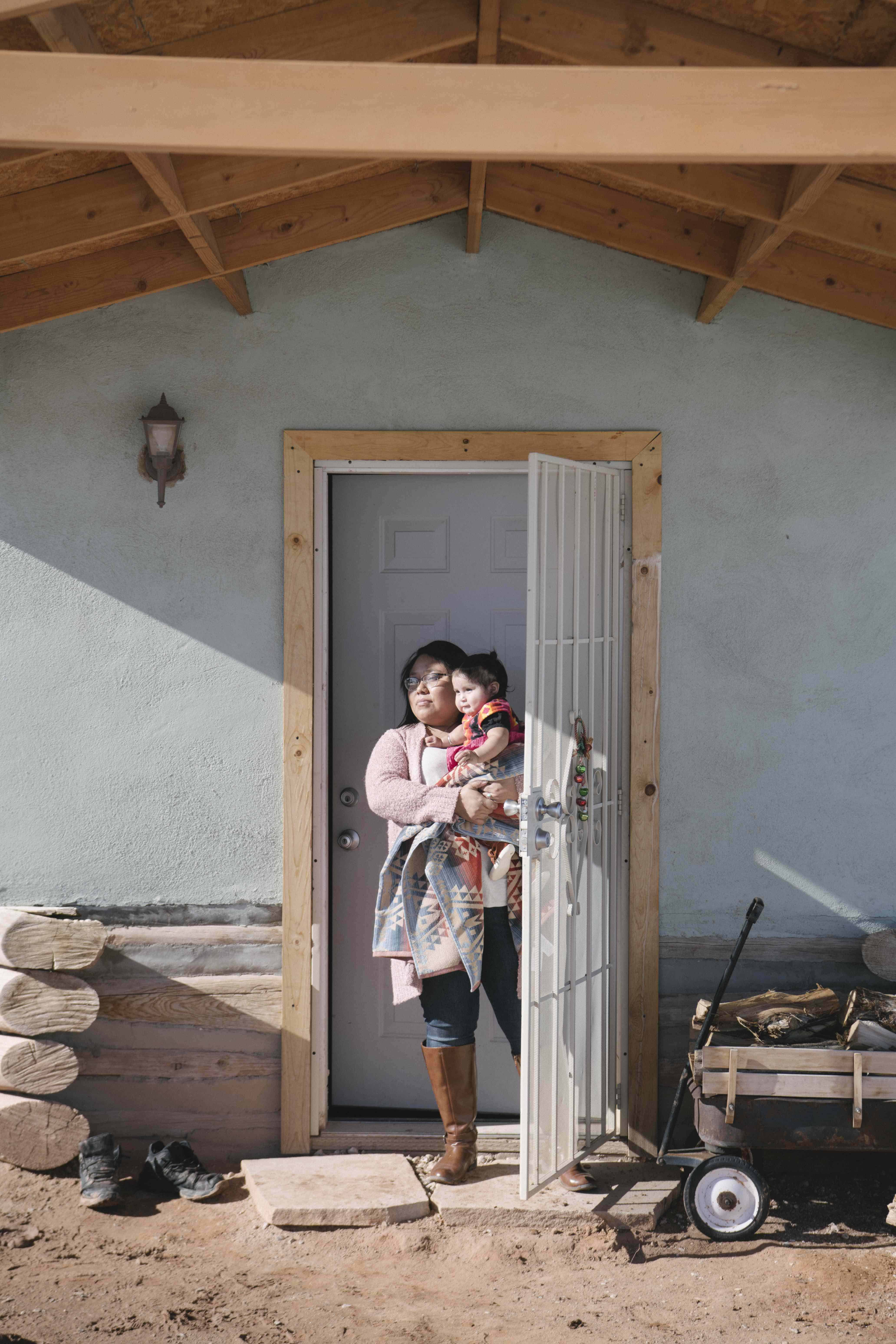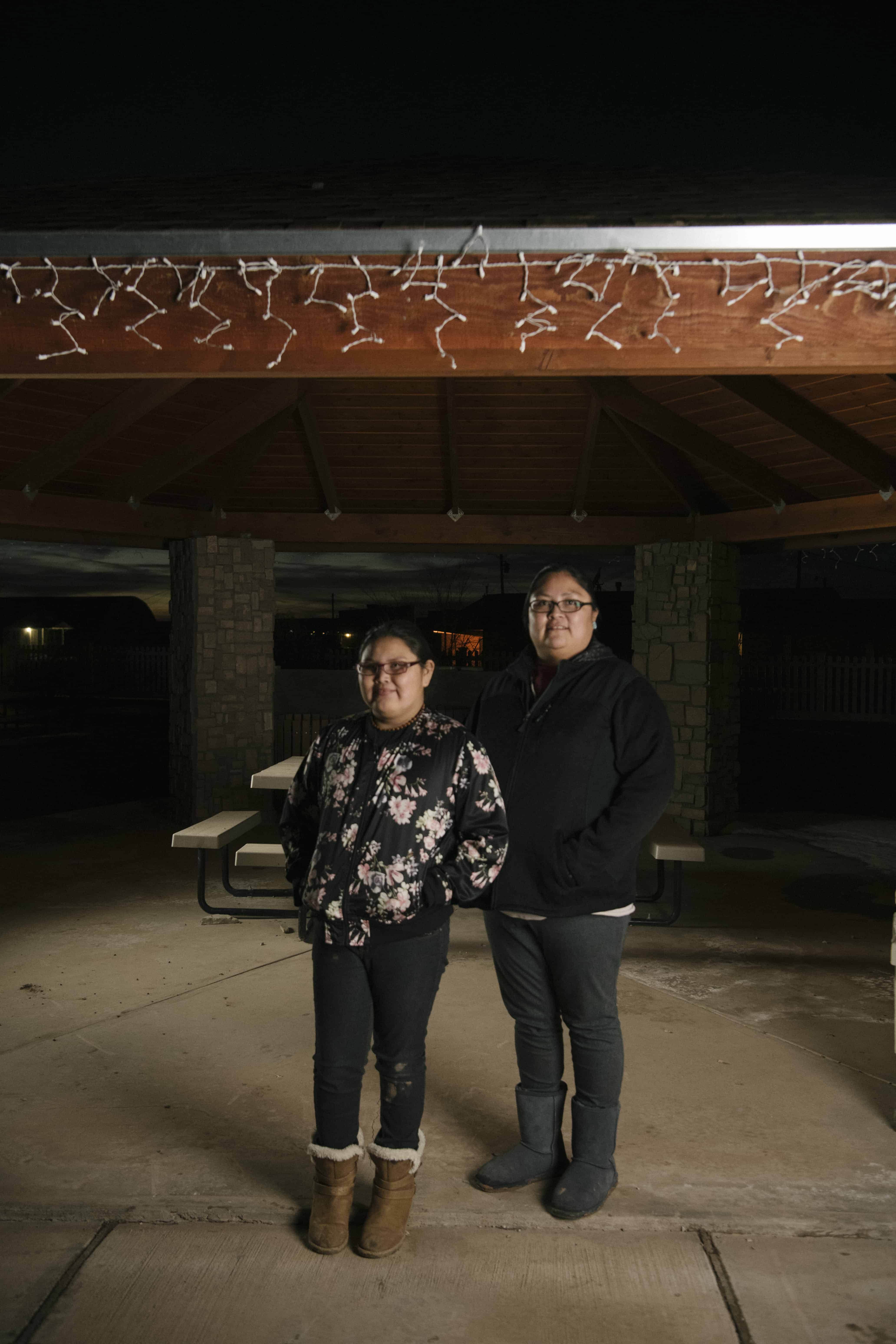Originally published November 21, 2019 in the Navajo Times.
New support from the U.S. Health and Human Services Office of Population Affairs will allow the Johns Hopkins Center for American Indian Health to deliver its teen pregnancy prevention program, Respecting the Circle of Life, to more than 800 youth and parents in Chinle, AZ, in the heart of the Navajo Nation.
Respecting the Circle of Life is the only comprehensive sexual health education program proven to work in Native American communities. Native Americans have the highest rate of teen pregnancy in the U.S., and while national teen pregnancy rates have dropped significantly in the past decade, Native American populations have not seen similar declines. In line with national trends in the U.S., rates of some sexually transmitted infections (STIs) among Native peoples have increased by 41% or more.

Just 1 in 2 teen mothers receive a high school diploma (Photo by Kiliii Yüyan).
Teen pregnancy has substantial social and economic costs. Just 50% of teen mothers receive a high school diploma by age 22 and just 2% receive a college degree. The children of teen mothers are more likely to have lower school achievement, have more health problems, face unemployment as a young adult and become teen parents themselves. These issues are compounded in many Native communities due to high rates of unemployment and poverty.
Given the absence of standardized, school-based sexual health education in this part of the Navajo Nation, Respecting the Circle of Life will fill essential gaps.
Shooting hoops and busting myths
Respecting the Circle of Life includes eight lessons delivered during a basketball-based camp to youth ages 10-19 by Native American paraprofessional educators from the same community. A ninth lesson is delivered at home to parents or other trusted adults.
Basketball is a popular, healthy, and accessible activity on most reservations—hoops are everywhere, and little other equipment is needed. Embedding educational lessons in a basketball camp also allows educators to reach higher-risk youth who may have dropped out of school.
Off the court, youth learn about partner negotiation, reproductive health, and relationships in gender-specific friendship groups. This format provides a safe social environment where young people reinforce each other’s positive, healthy decisions.
The curriculum provides an opportunity to educate youth and change their perception of pregnancy, relationships, and sexual health. Youth may ask questions confidentially each day by writing down their question down and adding it to a question box. At the start of the next day’s lesson, educators answer questions with the group without revealing who asked what.
For example, one anonymous questioner asked in a boys-only session of a previous camp if it was true that if a girl gets pregnant, it’s her responsibility. As the educator recalled, this provided an opportunity for open dialogue.
“We had to correct the boys, I told them—no, it’s both parents’ responsibility to care for the child,” said the educator.
At home with mom and dad
Family, valued as a nexus of strength in Native communities, strongly influences choices made by adolescents. Research shows that parental support for adolescents including open lines of communication can reduce the likelihood of young people engaging in risky sexual behavior. Based on this evidence, educators deliver the final lesson of Respecting the Circle of Life at the home of each participating youth, sitting around the kitchen table or living room with the youth and their parents or other trusted adults.

Educators deliver the final lesson at the home of each participating youth with a trusted adult (Photo by Kiliii Yüyan).
This visit is a time to refresh the adult’s own knowledge of teen pregnancy, STIs, prevention, and testing. Crucially, the lesson also focuses on strengthening dialogue between parents and children and reinforcing the need for parental monitoring of youth.
Many parents are relieved that their children have learned the basics in camp—about STIs, high risk behaviors, and how to use a condom—and that they, as parents, have the opportunity to review these topics with their child.
“It is easier to talk about sex and pregnancy with my son since he went to camp,” said the mother of a participant in Respecting the Circle of Life.
The Johns Hopkins Center for American Indian Health will evaluate the efficacy of Respecting the Circle of Life with youth and families in Chinle through a randomized controlled trial. While earlier research has established that the program is highly effective, additional research will demonstrate the ability of Respecting the Circle of Life to produce the same results in other tribal communities and grow support for long-term sustainability and scaling to other Native American communities across the U.S.
For cultural and contextual guidance, the Center is engaging a Community Advisory Board in Chinle composed of community leaders, providers from Indian Health Service, tribal government entities, as well as parents and youth. Many have personal motivations for supporting Respecting the Circle of Life.
“I was a teen mom and I don’t want my boys to go through what I went through,” said one community advisor. “The topics we’re talking about are really important to me and this program will help open [lines of communication] for our community as a whole,” she said.
Contents are solely the responsibility of the authors and do not necessarily represent the official views of the Department of Health and Human Services or the Office of Population Affairs.
Photo of girl in yellow shirt by Ed Cunicelli
